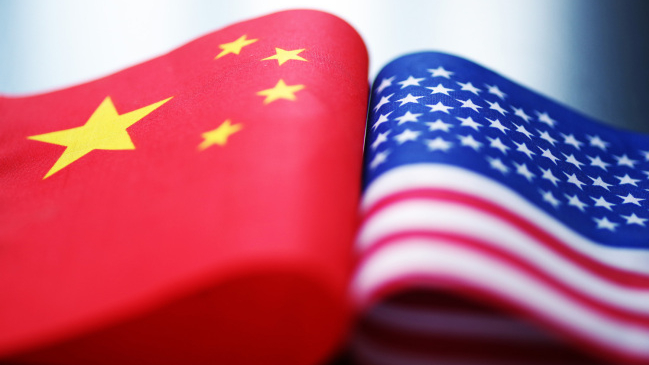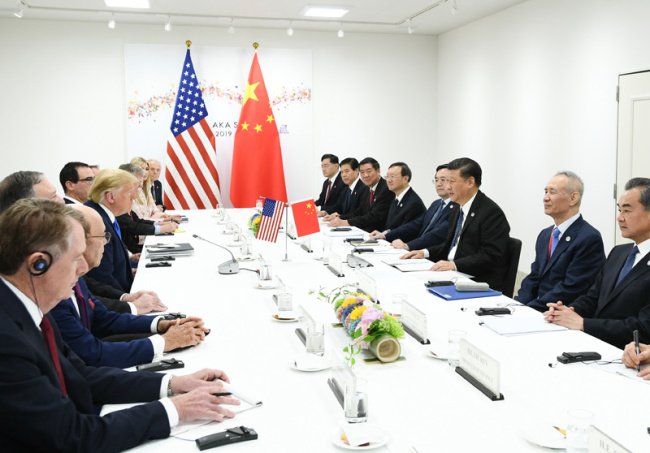

Editor's note: The following article was first published by China Plus on June 29, 2019. The article does not necessarily reflect the views of CGTN.
On the sidelines of the Group of 20 leaders' summit in Osaka, Japan, Chinese President Xi Jinping met with U.S. President Donald Trump. The two leaders agreed that the two countries will restart economic and trade consultations on the basis of equality and mutual respect. They also agreed that the U.S. will not put new tariffs on Chinese exports, and negotiating teams from both sides will discuss specific issues.
Adding tariffs will not solve problems but would only be counterproductive. The decision that China and the U.S. will restart economic and trade talks has sent a positive signal. The two counties are returning to the right track of solving problems. It complies with the will of the two peoples as well as the world's expectations. It will also help alleviate the tense atmosphere in the markets. However, the China-U.S. trade and economic issues are so complicated that hard work is still required to solve the issues effectively.

Chinese President Xi Jinping meets with U.S. President Donald Trump in Osaka, Japan, June 29, 2019. /Photo: Xinhua
China is sincere in continuing consultations with the U.S., but those consultations should be conducted on the basis of equality and mutual respect, with both sides accommodating each other's legitimate concerns. The status of both sides should be equal during consultations, and the results should be mutually beneficial. Neither side can compel the other to talk, nor can the results be beneficial only for one of the two sides. At the same time, both sides should respect each other's core interests and major concerns, rather than challenge their "bottom lines" or cross the "red line." Over the past month, China's measures to cope with the rising trade tensions have clearly demonstrated that China will firmly safeguard its core interests with a clear-cut stance when it comes to issues related to sovereignty and dignity.
During the Xi-Trump meeting, the U.S. side agreed that it will not put new tariffs on Chinese exports. This will create favorable conditions for the two countries to restart trade consultations. What's important next is that the U.S. side should match its deeds to its words and meet China halfway. The 40-year-long diplomatic ties between China and the U.S. have shown that the two countries will benefit if they cooperate, and both suffer if they confront each other. Cooperation and dialogue are better than frictions and fights. We hope that negotiating teams from both sides will grasp the hard-earned opportunity to restart talks, and translate the message conveyed by the meeting of the two leaders into reality.
During the G20 Summit in Osaka, President Xi announced five major opening up measures including the further opening of its market, proactively expanding imports, continuously improving its business environment, fully practicing equal treatment for foreign investors, and pressing ahead with negotiations on economic and trade deals. No matter what the result will be after the consultations restart, China will steadfastly strengthen itself through reform and opening-up to cope with all risks and challenges.
(If you want to contribute and have specific expertise, please contact us at opinions@cgtn.com.)

Copyright © 2018 CGTN. Beijing ICP prepared NO.16065310-3
Copyright © 2018 CGTN. Beijing ICP prepared NO.16065310-3